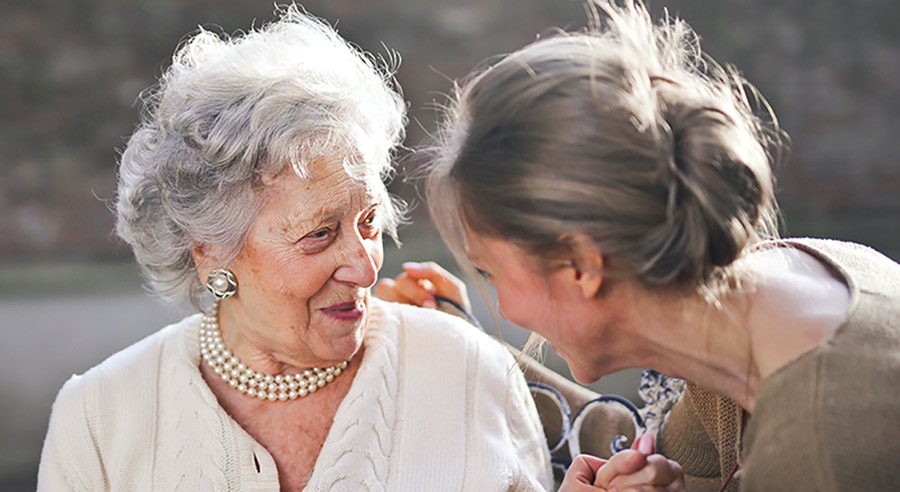Selecting the Right Home Care Providers: NDIS Plan Manager Insights and In Home Caregivers
Selecting the Right Home Care Providers: NDIS Plan Manager Insights and In Home Caregivers
Blog Article
Exactly How In Home Care Givers Address the Distinct Challenges and Emotional Demands of Family Members Looking For Support for Their Family Members
In-home caregivers play a pivotal duty in browsing the intricacies encountered by family members looking for assistance for their enjoyed ones. By understanding special household characteristics and giving customized emotional support, these professionals not only address prompt care demands but additionally cultivate a setting of trust and open communication. This strategy is important in managing the emotional strain often experienced by families, as it recognizes their problems and confirms their experiences. The subtleties of this relationship expand past mere caregiving; the effects for household well-being and caregiving effectiveness warrant further exploration.
Comprehending Family Members Dynamics
Comprehending household characteristics is critical for offering efficient at home treatment, as each family members runs within a distinct set of partnerships and communications. These characteristics incorporate numerous components, consisting of communication designs, functions, and class structure that affect exactly how care is provided and obtained. The caretaker must identify these aspects to ensure that care strategies align with the family members's expectations and values.
Different family members might exhibit distinct patterns of communication, such as collective methods or hierarchical frameworks. For circumstances, in some households, a main decision-maker might hold considerable influence, while in others, choices might be extra autonomous. Understanding these patterns helps caretakers customize their techniques to fit the household's particular needs.
In addition, social histories play an important function fit family dynamics. Caretakers must be culturally competent, recognizing and appreciating diverse techniques and beliefs that may influence care preferences.
Ultimately, a comprehensive understanding of family members dynamics promotes enhanced communication, cultivates count on, and boosts the caretaker's capacity to support the family properly. By acknowledging the intricate internet of responsibilities and partnerships, caretakers can create an encouraging atmosphere that advertises well-being for both the specific receiving treatment and the family overall.
Offering Emotional Support
Providing psychological support is an important component of at home treatment that dramatically improves the wellness of both the specific receiving treatment and their family members. In the context of caregiving, psychological support includes energetic listening, compassion, and validation of feelings. Caretakers are trained to recognize the emotional struggles that families deal with, such as anxiety, isolation, and regret, and to give a compassionate existence that minimizes these worries.
By cultivating open communication, caregivers produce a secure area for household participants to express their anxieties and issues. This discussion not just urges psychological launch yet additionally strengthens count on between the caregiver and the household. In addition, caretakers can use sensible techniques to assist households manage stress and advertise strength.

Ultimately, the emotional assistance given by in-home caregivers boosts the lifestyle for both clients and their households, advertising a much more thoughtful and understanding caregiving atmosphere. This alternative strategy guarantees that emotional needs are resolved along with physical wellness considerations.
Managing Daily Treatment Tasks
Taking care of day-to-day treatment jobs is a crucial aspect of at home treatment that ensures individuals receive the support they require to keep their health and wellness and freedom. Caregivers play a crucial role in helping with tasks of daily living (ADLs), that include bathing, clothing, grooming, and dish preparation. By handling these duties, caretakers help reduce the physical and psychological concerns that households might deal with while looking after their loved ones.
Along with personal care, caregivers are additionally tasked with medicine monitoring, ensuring that clients stick to prescribed timetables and dosages. This oversight is essential for keeping wellness and stopping adverse results from missed or wrong medications. Moreover, caretakers typically aid with mobility, offering support for clients walking around their homes, consequently reducing the risk of falls and enhancing overall safety.

Promoting Open Interaction
Efficient management of everyday treatment tasks typically depends upon the top quality of communication in between caregivers, customers, and their households. Open communication fosters a setting where worries, preferences, and responses can be easily exchanged, ensuring that care is tailored to fulfill individual demands. Caregivers must prioritize normal check-ins with both customers and their families, promoting discussions that attend to any type of concerns or changes in treatment requirements.
Using different interaction techniques-- such as face-to-face meetings, call, and composed updates-- can enhance understanding and give family members with comfort. It's important for caretakers to proactively listen, demonstrating empathy and respect for the emotional landscape of the family. Motivating inquiries from family members can likewise assist make clear care strategies and strengthen the caregiver's commitment to transparency.
Furthermore, keeping open lines of communication makes it possible for caregivers to identify and react without delay to any type of changes in a customer's wellness condition or emotional wellness. This aggressive technique not only strengthens continue reading this the caregiver-client dynamic but also empowers families to take part actively in the care process. Ultimately, fostering open communication is vital for boosting the top quality of in-home treatment and advertising a supportive atmosphere for all entailed.
Structure Trust Fund and Relationships
Trust fund is the keystone of effective at home care, as it establishes a foundation for significant connections in between caregivers, clients, and their households. Structure this trust fund calls for constant, transparent communication and an authentic commitment to the well-being of those involved. Caretakers have to demonstrate reliability via preparation, adherence to care plans, and responsiveness to the needs and preferences of customers.
To promote count on, caregivers must take part in active listening, ensuring that family members really feel heard and understood. This entails not just attending to immediate issues but additionally expecting future needs, therefore equipping families and enhancing their feeling of control. Establishing rapport via shared experiences and respectful communications can additionally solidify these connections.
Furthermore, caretakers should be educated to acknowledge and deal with the psychological intricacies faced by families. By showing empathy and compassion, they can minimize anxieties and unpredictabilities, reinforcing trust fund. Regular updates and check-ins with relative can likewise enhance openness, permitting them to really feel involved and informed regarding their liked one's treatment.
Eventually, constructing count on and nurturing partnerships in in-home care is a joint process that dramatically impacts the high quality of treatment provided, promoting an encouraging environment that profits every person involved.
Verdict
In-home caregivers play a Visit Your URL crucial function in addressing the special obstacles and emotional requirements of families. By comprehending family characteristics, supplying emotional assistance, and fostering open interaction, caregivers boost the general caregiving experience. Their capacity to handle day-to-day care tasks while constructing trust fund and strong relationships grows a supportive environment for clients and their households. Inevitably, the thoughtful involvement of caretakers significantly adds to improved well-being and resilience for those browsing the intricacies of caregiving.
Comprehending household dynamics is essential for giving efficient in-home treatment, as each household operates within an unique collection of partnerships and communications.Supplying emotional support is an essential part of at home care that substantially enhances the wellness of both the individual getting care and their household members. By taking on these duties, caretakers help minimize the physical and psychological worries that households may deal with while caring for their enjoyed ones.
Reliable monitoring of day-to-day treatment jobs often pivots on the quality of communication in between caregivers, clients, and their family members - ndis support coordinator.Depend on is the keystone of successful at home care, as it establishes a structure for meaningful connections in between caretakers, clients, and their households
Report this page